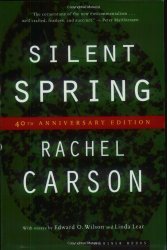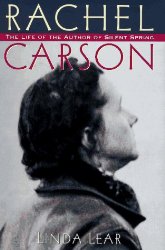Toxics
Fewer Chemicals Make Healthier Babies
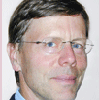 Toxicologist Steven G. Gilbert, PhD, DABT, a regular guest who is helping us understand the toxicity of common chemicals we may be frequently exposed to. Dr. Gilbert is Director and Founder of the Institute of Neurotoxicology and author of A Small Dose of Toxicology- The Health Effects of Common Chemicals.
Toxicologist Steven G. Gilbert, PhD, DABT, a regular guest who is helping us understand the toxicity of common chemicals we may be frequently exposed to. Dr. Gilbert is Director and Founder of the Institute of Neurotoxicology and author of A Small Dose of Toxicology- The Health Effects of Common Chemicals.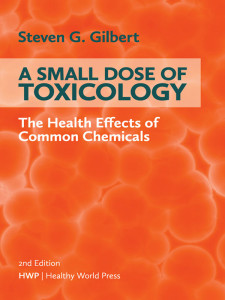 He received his Ph.D. in Toxicology in 1986 from the University of Rochester, Rochester, NY, is a Diplomat of American Board of Toxicology, and an Affiliate Professor in the Department of Environmental and Occupational Health Sciences, University of Washington. His research has focused on neurobehavioral effects of low-level exposure to lead and mercury on the developing nervous system. Dr. Gilbert has an extensive website about toxicology called Toxipedia, which includes a suite of sites that put scientific information in the context of history, society, and culture. www.toxipedia.org
He received his Ph.D. in Toxicology in 1986 from the University of Rochester, Rochester, NY, is a Diplomat of American Board of Toxicology, and an Affiliate Professor in the Department of Environmental and Occupational Health Sciences, University of Washington. His research has focused on neurobehavioral effects of low-level exposure to lead and mercury on the developing nervous system. Dr. Gilbert has an extensive website about toxicology called Toxipedia, which includes a suite of sites that put scientific information in the context of history, society, and culture. www.toxipedia.org
The MP3 of this interview has been lost, but will be placed here if we can find a copy.
Toxics Then and Now: Debra Celebrates Thirty Years in Print
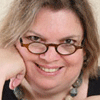
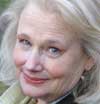 Today my guest and I are switching seats—I am the guest and my long-time friend Annie B. Bond will be the host. I’m celebrating 30 years in print (it was November 1 to be exact) so we’re going to talk about where the current interest in toxics in consumer products started (with my first book) and the progress made over the last 30 years. We’ve come a long way identifying toxics in consumer products and their health effects, and many more toxic free products are available today than ever before.
Today my guest and I are switching seats—I am the guest and my long-time friend Annie B. Bond will be the host. I’m celebrating 30 years in print (it was November 1 to be exact) so we’re going to talk about where the current interest in toxics in consumer products started (with my first book) and the progress made over the last 30 years. We’ve come a long way identifying toxics in consumer products and their health effects, and many more toxic free products are available today than ever before.
Debra Lynn Dadd is the author of seven books on toxics in consumer products and safe alternatives, including Toxic Free (Tarcher/Penguin, 2011). She has compiled the largest website on toxic free living, which is the only website 100% devoted to toxic chemicals, their health effects, where they are found in consumer products, and how to live toxic free. She was named “The Queen of Green” by the New York Times (mid-1990s). Debra is the host of Toxic Free Talk Radio. www.debralynndadd.com
Annie B. Bond is the author of five books, including Better Basics for the Home (Three Rivers Press, 1999), Home Enlightenment (Rodale Books, 2008), and most recently True Food (National Geographic, 2010). She was named “the foremost expert on green living” by “Body & Soul” magazine (February, 2009). www.anniebbond.com
The MP3 of this interview has been lost, but will be placed here if we can find a copy.
How Toxic Obesogens Can Make You Fat and Prevent Weight Loss
 My guest today is Lara Adler, Environmental Toxins Expert and Certified Holistic Health Coach. We’ll be talking about how obesogens affect your weight, what happens to toxics stored in fat when you lose weight, specific chemicals that are obesogens, and and what you can doShe trains and educates practitioners within the health and wellness community to better understand the links between environmental toxins and their impact on disease states—from weight gain and diabetes, to thyroid disease and developmental disorders—so they can better support their clients. Lara is deeply committed to peeling back the curtain and opening up the conversation about environmental toxins to people in a way that’s informative, accessible, actionable and totally free from overwhelm. She takes a practical, real-world approach to minimizing toxic exposure to safeguard our health. www.laraadler.com
My guest today is Lara Adler, Environmental Toxins Expert and Certified Holistic Health Coach. We’ll be talking about how obesogens affect your weight, what happens to toxics stored in fat when you lose weight, specific chemicals that are obesogens, and and what you can doShe trains and educates practitioners within the health and wellness community to better understand the links between environmental toxins and their impact on disease states—from weight gain and diabetes, to thyroid disease and developmental disorders—so they can better support their clients. Lara is deeply committed to peeling back the curtain and opening up the conversation about environmental toxins to people in a way that’s informative, accessible, actionable and totally free from overwhelm. She takes a practical, real-world approach to minimizing toxic exposure to safeguard our health. www.laraadler.com
Audio Player
How Mercury Affects Your Health
 Toxicologist Steven G. Gilbert, PhD, DABT, a regular guest who is helping us understand the toxicity of common chemicals we may be frequently exposed to. Dr. Gilbert is Director and Founder of the Institute of Neurotoxicology and author of A Small Dose of Toxicology- The Health Effects of Common Chemicals.
Toxicologist Steven G. Gilbert, PhD, DABT, a regular guest who is helping us understand the toxicity of common chemicals we may be frequently exposed to. Dr. Gilbert is Director and Founder of the Institute of Neurotoxicology and author of A Small Dose of Toxicology- The Health Effects of Common Chemicals. He received his Ph.D. in Toxicology in 1986 from the University of Rochester, Rochester, NY, is a Diplomat of American Board of Toxicology, and an Affiliate Professor in the Department of Environmental and Occupational Health Sciences, University of Washington. His research has focused on neurobehavioral effects of low-level exposure to lead and mercury on the developing nervous system. Dr. Gilbert has an extensive website about toxicology called Toxipedia, which includes a suite of sites that put scientific information in the context of history, society, and culture. www.toxipedia.org
He received his Ph.D. in Toxicology in 1986 from the University of Rochester, Rochester, NY, is a Diplomat of American Board of Toxicology, and an Affiliate Professor in the Department of Environmental and Occupational Health Sciences, University of Washington. His research has focused on neurobehavioral effects of low-level exposure to lead and mercury on the developing nervous system. Dr. Gilbert has an extensive website about toxicology called Toxipedia, which includes a suite of sites that put scientific information in the context of history, society, and culture. www.toxipedia.org
Audio Player
Nanoparticles
 Toxicologist Steven G. Gilbert, PhD, DABT, a regular guest who is helping us understand the toxicity of common chemicals we may be frequently exposed to. Dr. Gilbert is Director and Founder of the Institute of Neurotoxicology and author of A Small Dose of Toxicology- The Health Effects of Common Chemicals.
Toxicologist Steven G. Gilbert, PhD, DABT, a regular guest who is helping us understand the toxicity of common chemicals we may be frequently exposed to. Dr. Gilbert is Director and Founder of the Institute of Neurotoxicology and author of A Small Dose of Toxicology- The Health Effects of Common Chemicals. He received his Ph.D. in Toxicology in 1986 from the University of Rochester, Rochester, NY, is a Diplomat of American Board of Toxicology, and an Affiliate Professor in the Department of Environmental and Occupational Health Sciences, University of Washington. His research has focused on neurobehavioral effects of low-level exposure to lead and mercury on the developing nervous system. Dr. Gilbert has an extensive website about toxicology called Toxipedia, which includes a suite of sites that put scientific information in the context of history, society, and culture. www.toxipedia.org
He received his Ph.D. in Toxicology in 1986 from the University of Rochester, Rochester, NY, is a Diplomat of American Board of Toxicology, and an Affiliate Professor in the Department of Environmental and Occupational Health Sciences, University of Washington. His research has focused on neurobehavioral effects of low-level exposure to lead and mercury on the developing nervous system. Dr. Gilbert has an extensive website about toxicology called Toxipedia, which includes a suite of sites that put scientific information in the context of history, society, and culture. www.toxipedia.org
Audio Player
Toxics and Trees
 My guest today is Shannon Smith, Communications and User Voice at Ecosia.org, a search engine that helps the environment by planting trees as you search the web. We’ll be talking about how trees create clean air and our our the air pollution we create harms trees. Ecosia is a search engine that plants trees when users search the web. The social business has already raised over $1.5 million for rainforest protection since its founding in December 2009. By donating 80% of its ad income to a tree planting program in Brazil’s Atlantic Forest, Ecosia aims to have the highest positive impact on the environment per dollar. The Berlin-based start-up neutralises all CO2 emissions related to its search as well as publishing donation receipts online – its promise to the two million monthly Ecosia users, who are proving that small changes can have a big impact. Former journalist and writer Shannon Smith has liaised between users, partners and team members since 2010 to build Ecosia into a movement for sustainable change. She is a Texas native. www.ecosia.org
My guest today is Shannon Smith, Communications and User Voice at Ecosia.org, a search engine that helps the environment by planting trees as you search the web. We’ll be talking about how trees create clean air and our our the air pollution we create harms trees. Ecosia is a search engine that plants trees when users search the web. The social business has already raised over $1.5 million for rainforest protection since its founding in December 2009. By donating 80% of its ad income to a tree planting program in Brazil’s Atlantic Forest, Ecosia aims to have the highest positive impact on the environment per dollar. The Berlin-based start-up neutralises all CO2 emissions related to its search as well as publishing donation receipts online – its promise to the two million monthly Ecosia users, who are proving that small changes can have a big impact. Former journalist and writer Shannon Smith has liaised between users, partners and team members since 2010 to build Ecosia into a movement for sustainable change. She is a Texas native. www.ecosia.org
Audio Player
Persistant Bioaccumulative Toxicants
 Toxicologist Steven G. Gilbert, PhD, DABT, a regular guest who is helping us understand the toxicity of common chemicals we may be frequently exposed to. Dr. Gilbert is Director and Founder of the Institute of Neurotoxicology and author of A Small Dose of Toxicology- The Health Effects of Common Chemicals.
Toxicologist Steven G. Gilbert, PhD, DABT, a regular guest who is helping us understand the toxicity of common chemicals we may be frequently exposed to. Dr. Gilbert is Director and Founder of the Institute of Neurotoxicology and author of A Small Dose of Toxicology- The Health Effects of Common Chemicals. He received his Ph.D. in Toxicology in 1986 from the University of Rochester, Rochester, NY, is a Diplomat of American Board of Toxicology, and an Affiliate Professor in the Department of Environmental and Occupational Health Sciences, University of Washington. His research has focused on neurobehavioral effects of low-level exposure to lead and mercury on the developing nervous system. Dr. Gilbert has an extensive website about toxicology called Toxipedia, which includes a suite of sites that put scientific information in the context of history, society, and culture. www.toxipedia.org
He received his Ph.D. in Toxicology in 1986 from the University of Rochester, Rochester, NY, is a Diplomat of American Board of Toxicology, and an Affiliate Professor in the Department of Environmental and Occupational Health Sciences, University of Washington. His research has focused on neurobehavioral effects of low-level exposure to lead and mercury on the developing nervous system. Dr. Gilbert has an extensive website about toxicology called Toxipedia, which includes a suite of sites that put scientific information in the context of history, society, and culture. www.toxipedia.org
Audio Player
Where to Start Eliminating Household Toxics
 My guest today is Amy Ziff, Founder and Chief Capidealist™ (someone who believes that world change will come about through harnessing our collective purchasing power on the free market) of Veritey, a website that makes it exceedingly simple to find products and services that are healthy. Amy puts an amazing amount of work into evaluating the products she sells and rates each one for being nontoxic, sustainable, cruelty-free and socially responsible. We’ll be talking about where to start once you decided to eliminate toxics from your life as well as her own process of choosing toxic-free products. Amy is a trained journalist, proven entrepreneur, start-up veteran, and healthy living advocate. She never wanted to work at a women’s magazine writing about make-up. Amy always was looking for ways to make a difference, and to find better ways to live a healthy life. When she became a mom, everything came together. Amy was frustrated by how hard it was to make what should be simple decisions – healthy decisions – for herself and her family. For years as a hobby, Amy has been seeking out the truth about products and their real ingredients. (What companies put in their products can be shocking, including known carcinogens and other toxic chemicals that can cause an array of conditions from asthma to infertility, and which are often not disclosed.) Amy believes you shouldn’t need a PhD to decipher what products are safe to use and which to avoid. Yet the reality is that getting to the truth of what’s in a product can take hours of research and a lot of legwork. Most busy moms and parents just don’t have that kind of time. Veritey makes it simple for people who are time pressed to make healthier decisions. Veritey is about where truth meets healthy living. www.veritey.com
My guest today is Amy Ziff, Founder and Chief Capidealist™ (someone who believes that world change will come about through harnessing our collective purchasing power on the free market) of Veritey, a website that makes it exceedingly simple to find products and services that are healthy. Amy puts an amazing amount of work into evaluating the products she sells and rates each one for being nontoxic, sustainable, cruelty-free and socially responsible. We’ll be talking about where to start once you decided to eliminate toxics from your life as well as her own process of choosing toxic-free products. Amy is a trained journalist, proven entrepreneur, start-up veteran, and healthy living advocate. She never wanted to work at a women’s magazine writing about make-up. Amy always was looking for ways to make a difference, and to find better ways to live a healthy life. When she became a mom, everything came together. Amy was frustrated by how hard it was to make what should be simple decisions – healthy decisions – for herself and her family. For years as a hobby, Amy has been seeking out the truth about products and their real ingredients. (What companies put in their products can be shocking, including known carcinogens and other toxic chemicals that can cause an array of conditions from asthma to infertility, and which are often not disclosed.) Amy believes you shouldn’t need a PhD to decipher what products are safe to use and which to avoid. Yet the reality is that getting to the truth of what’s in a product can take hours of research and a lot of legwork. Most busy moms and parents just don’t have that kind of time. Veritey makes it simple for people who are time pressed to make healthier decisions. Veritey is about where truth meets healthy living. www.veritey.com
Audio Player
How Antibiotics and Antibacterials are Compromising our Health
 My guest today is Martin J. Blaser, MD, author of Missing Microbes: How the Overuse of Antibiotics Is Fueling Our Modern Plagues. We’ll be talking about how the massive increases in the developed world of “modern plagues”—such as obesity, type 1 diabetes, asthma, allergies, esophageal cancer, celiac disease, Crohn’s disease, ulcerative colitis, and autism—are related to loss of diversity of the complex—and crucially important—ecosystem of microorganisms within our bodies on which we all depend. As diversity diminishes, our immune systems are compromised, and we become much more susceptible to new infections. And this loss of micro-organism diversity is due to the use of wide use of antibiotics and products that contain antibacterials such as triclosan.
My guest today is Martin J. Blaser, MD, author of Missing Microbes: How the Overuse of Antibiotics Is Fueling Our Modern Plagues. We’ll be talking about how the massive increases in the developed world of “modern plagues”—such as obesity, type 1 diabetes, asthma, allergies, esophageal cancer, celiac disease, Crohn’s disease, ulcerative colitis, and autism—are related to loss of diversity of the complex—and crucially important—ecosystem of microorganisms within our bodies on which we all depend. As diversity diminishes, our immune systems are compromised, and we become much more susceptible to new infections. And this loss of micro-organism diversity is due to the use of wide use of antibiotics and products that contain antibacterials such as triclosan.  Dr. Blaser has studied the role of bacteria in human disease for more than thirty years. He is the director of the Human Microbiome Program at New York University, the former president of the Infectious Diseases Society of America, and has held major advisory roles at the National Institutes of Health. He cofounded the Bellevue Literary Review, and his work has been written about in many newspapers and journals, including The New Yorker, Nature, The New York Times, The Washington Post, and The Wall Street Journal. He lives in New York City. www.martinblaser.com.
Dr. Blaser has studied the role of bacteria in human disease for more than thirty years. He is the director of the Human Microbiome Program at New York University, the former president of the Infectious Diseases Society of America, and has held major advisory roles at the National Institutes of Health. He cofounded the Bellevue Literary Review, and his work has been written about in many newspapers and journals, including The New Yorker, Nature, The New York Times, The Washington Post, and The Wall Street Journal. He lives in New York City. www.martinblaser.com.
Audio Player
An Environmental Ethic for the 21st Century—Without Toxic Chemicals
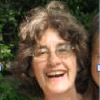 Today I’m celebrating Rachel Carson’s birthday with my guest Patricia DeMarco PhD. In 1962 Rachel Carson wrote Silent Spring, the book about toxic pesticides that laid the groundowork for the environmental movement and the establishment of the EPA. But she also wrote many other books and papers as a naturalist. Today we will be talking about what Rachel left us and what we can still learn from her work today. Patricia has been a Rachel Carson scholar since 2005, with service as the Executive Director of the Rachel Carson Homestead Association and as the Director of the Rachel Carson Institute at Chatham University. She writes and speaks extensively on the environmental ethic of Rachel Carson and her relevance to modern times. She is currently writing a book titled “Pathways to Our Sustainable Future.” www.rachelcarson.org/ | www.rachelcarsoncouncil.org | www.rachel_carson_homestead.myupsite.com
Today I’m celebrating Rachel Carson’s birthday with my guest Patricia DeMarco PhD. In 1962 Rachel Carson wrote Silent Spring, the book about toxic pesticides that laid the groundowork for the environmental movement and the establishment of the EPA. But she also wrote many other books and papers as a naturalist. Today we will be talking about what Rachel left us and what we can still learn from her work today. Patricia has been a Rachel Carson scholar since 2005, with service as the Executive Director of the Rachel Carson Homestead Association and as the Director of the Rachel Carson Institute at Chatham University. She writes and speaks extensively on the environmental ethic of Rachel Carson and her relevance to modern times. She is currently writing a book titled “Pathways to Our Sustainable Future.” www.rachelcarson.org/ | www.rachelcarsoncouncil.org | www.rachel_carson_homestead.myupsite.com
Audio Player


